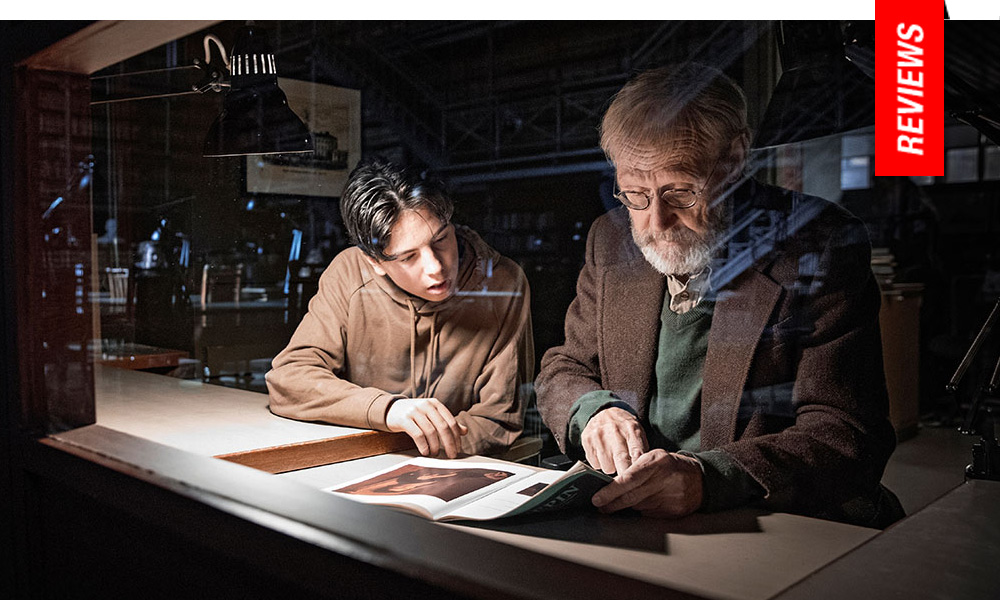One Last Deal | 2018 Toronto Intl. Film Festival Review
Art to Art: Haro Conjures Another Character Study in Crowd-pleasing Drama
Much like his contemporary Dome Karukoski, Finnish director Klaus Härö is one of his country’s most prolific contemporary filmmakers yet to break out into significant international acclaim despite having a string of notable titles to his name. Haro is quite esteemed in Finland as four of his five previous titles have been selected as his country’s submission for Best Foreign Language film (the sole exception being his 2007 title The New Man), while his last effort, 2015’s The Fencer, reached the esteemed shortlist and received significant critical acclaim. His latest is a bit of an old-fashioned melodrama with predictable beats but enjoyable characterizations in One Last Deal, an English language title which doesn’t do the film any justice (the translation of the original Finnish language title is more adept, An Unknown Master).
Art dealer Olavi (Heikki Nousiainen) finds himself on the verge of retirement at the age of 72. With his glory days behind him and his musty shop without the steady stream of customers which had kept him afloat in years past, he’s more determined than ever to land upon one last treasure he could acquire and then sell for the price its worth. Unfortunately, this scheme is exactly what has estranged Olavi from his adult daughter Lea (Pirjo Lonka) and his grandson Otto (Amos Brotherus). But then Olavi spies a piece of art he is convinced is a lost work from a famed Russian artist. As hope is reborn, Otto comes to his shop looking for a job, which the old man uses an opportunity to share his skills in a trade which has largely neglected the necessary footwork required to discover forgotten pieces of art.
One Last Deal is a perfect companion piece to Haro’s earlier (and more nuanced) film Letters to Father Jacob, also a film about a career-fixated elder male who can’t extricate himself from his profession, compromising his personal relationships in search of a higher calling. That high calling this time around is the complex process of art dealing, with an old school collector clinging to a process which has left him financially ruined in an industry which, like all others, has become predicated on algorithms and untrained, uneducated eyes. As someone carelessly describes, “you collect junk thinking one day you’ll find a treasure.” Bingo. Still, search he does for a jewel to make it all worthwhile, which he suddenly discovers in the form of an unsigned icon which he is convinced is a neglected work by Russian painter Ilya Repin (whose reputation at the time he was alive was like Tolstoy’s on the literary scene).
The plot twists of One Last Deal couldn’t be more predictable, and yet there’s an enjoyable victory to be felt for Olavi, who may have eschewed the comforts of family but whose actions have been designed all along to provide for them. Of course, much of this is owed to Heikki Nousiainen’s central performance, a hangdog specter of the man he used to be, like some dried up phantom lurking in the backdrop of a forgotten Dickens story, the actor as enjoyable here as the similarly gung-ho titular protagonist in Haro’s superior Letters to Father Jacob.
Where the narrative really suffers is with how it resolves both the hang-ups Olavi encounters while trying to sell his piece which hails from the Golden Age of Finnish art, and how this conveniently ties into his reunion with estranged daughter Lea and grandson Otto (both relationships which remain shadowed by Olavi’s commitments to his impassioned profession until the finale).
Composer Matti Bye (who scored Jan Troell’s late career masterpiece Everlasting Moments in 2008) provides a Philip Glass-ish score which manages to fill in a lot of the script’s missing emotional components, while DP Tuomo Hutri (who lensed both Fencer and Father Jacob) initially chooses a muted color palette meant to reflect the look of Olavi’s rundown shop and the dusty canvases it contains. Increasingly, the film takes on a lighter, rosy glow as Olavi’s redemption pulls up in the rear, tending to enhance the artificiality of its resolution.
Reviewed on September 7th – Contemporary World Cinema Programme. 95 Mins.
★★½/☆☆☆☆☆
Los Angeles based Nicholas Bell is IONCINEMA.com's Chief Film Critic and covers film festivals such as Sundance, Berlin, Cannes and TIFF. He is part of the critic groups on Rotten Tomatoes, The Los Angeles Film Critics Association (LAFCA), the Online Film Critics Society (OFCS) and GALECA. His top 3 for 2021: France (Bruno Dumont), Passing (Rebecca Hall) and Nightmare Alley (Guillermo Del Toro). He was a jury member at the 2019 Cleveland International Film Festival.
























